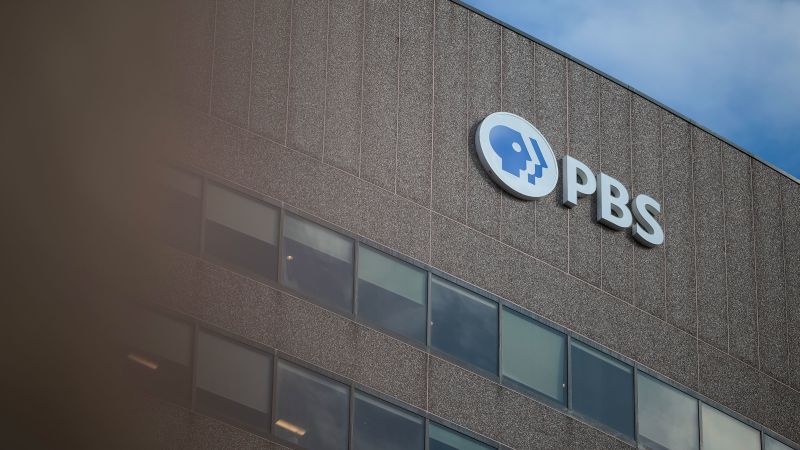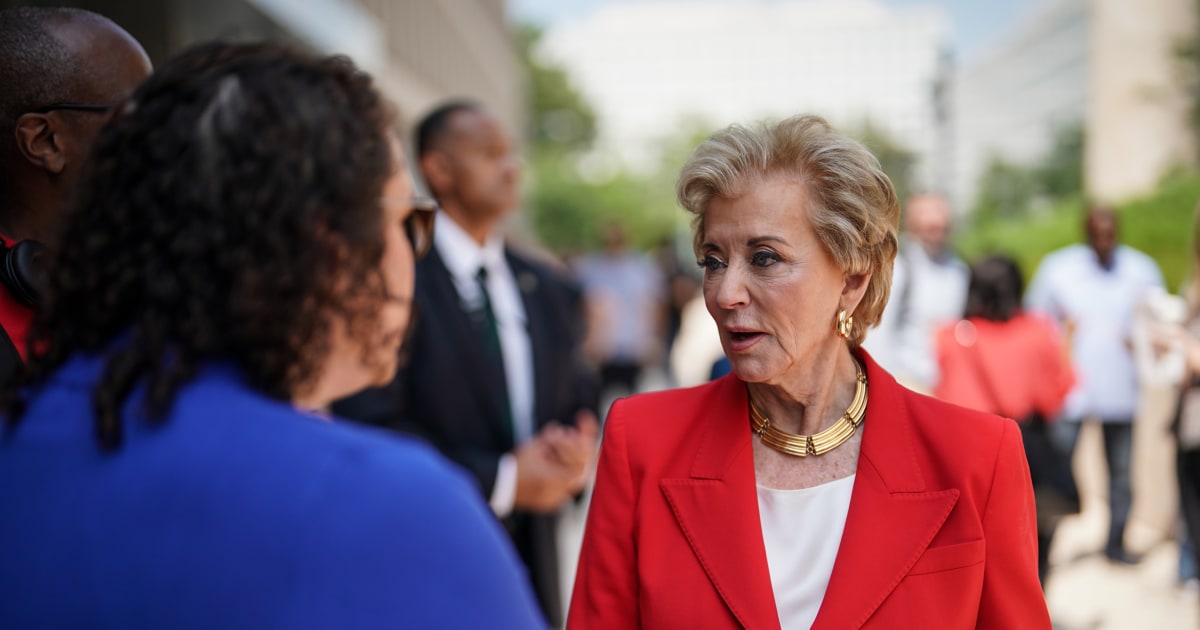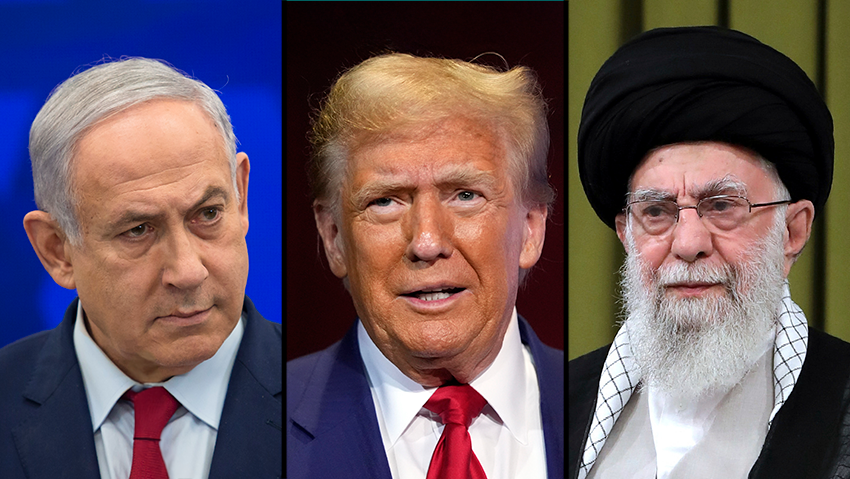Columbia University Agrees to Pay $220 Million to Restore Federal Funding
Introduction
In a significant development, Columbia University has agreed to pay the Trump administration more than $220 million in a deal to restore federal funding. This comes after the university's research money was canceled in the name of combating antisemitism on campus. The Ivy League institution had been in a legal battle with the Education Department since 2019, when it was accused of violating civil rights laws by allowing a hostile environment for Jewish students.
Key Details
The agreement between Columbia University and the Trump administration will not only restore federal funding but also put an end to the ongoing legal battle. This move is seen as a win for the university and for President Trump, who has been vocal about his support for Israel and concern over antisemitism on college campuses. The deal also sets a precedent for other universities to address similar concerns and avoid losing federal funding in the future.
Impact
The agreement has sparked debates and discussions on the current state of free speech on college campuses, with some arguing that the line between free speech and hate speech is becoming blurred. It also raises questions about the role of the government in regulating speech on college campuses and the potential impact on academic freedom. This development serves as a reminder for universities to carefully consider their policies and actions in order to maintain a balance between protecting free speech and preventing discrimination.
About the People Mentioned
Donald Trump
Donald John Trump, born June 14, 1946, in Queens, New York, is an American businessman, media personality, and politician. He graduated from the University of Pennsylvania’s Wharton School in 1968 with a degree in economics. In 1971, he took over his family’s real estate business, renaming it the Trump Organization, through which he expanded into building and managing skyscrapers, hotels, casinos, and golf courses. Trump gained widespread fame as the host of the reality TV show *The Apprentice* from 2004 to 2015, which helped establish his public persona as a successful entrepreneur. Trump entered politics as a Republican and was elected the 45th president of the United States, serving from 2017 to 2021. His presidency was marked by significant policy actions including tax cuts, deregulation, the appointment of three Supreme Court justices, renegotiation of trade agreements (notably replacing NAFTA with the USMCA), and a focus on immigration control including border wall expansion. He withdrew the U.S. from international agreements such as the Paris Climate Accord and the Iran nuclear deal, and engaged in a trade war with China. His administration’s response to the COVID-19 pandemic was criticized for downplaying the virus’s severity. Trump was impeached twice by the House of Representatives—first in 2019 for abuse of power and obstruction, and again in 2021 for incitement of insurrection—but was acquitted by the Senate both times. After losing the 2020 election to Joe Biden, Trump challenged the results, culminating in the January 6, 2021, Capitol riot. He remains a central figure in American politics, having won the 2024 presidential election and returned as the 47th president in 2025, continuing to promote policies aimed at economic growth, border security, and military strength[1][2][3][4].
About the Organizations Mentioned
Columbia University
Columbia University, established in 1754 as King’s College, is a private Ivy League research university located in the heart of Upper Manhattan, New York City—making it one of the oldest and most prestigious institutions of higher education in the United States[4]. Renamed Columbia College after the American Revolution, the university moved to its present Morningside Heights campus in 1896 and has since grown into a global academic powerhouse[4]. Columbia’s mission centers on advancing knowledge through research, teaching, and public engagement. The university’s academic structure includes three undergraduate schools (Columbia College, the Fu Foundation School of Engineering and Applied Science, and the School of General Studies) and sixteen graduate and professional schools, spanning fields from journalism and law to business and medicine[3][4]. Columbia is especially renowned for its rigorous Core Curriculum, which emphasizes interdisciplinary liberal arts education, critical thinking, and engagement with classic texts[2]. The university’s location in New York City serves as an extended classroom, offering students unparalleled access to internships, research opportunities, and cultural experiences[2]. Key achievements include the establishment of the Pulitzer Prize, which Columbia administers annually, and its role as a founding member of the Association of American Universities[4]. The university boasts a distinguished alumni network, including U.S. presidents, Nobel laureates, Supreme Court justices, and leaders in business, technology, and the arts[3]. Columbia’s research initiatives are equally impressive, with major facilities such as the Lamont–Doherty Earth Observatory and partnerships with tech giants like Amazon and IBM[4]. Currently, Columbia is ranked among the top 25 universities globally, with a 3.9% acceptance rate and a 95% placement rate for graduates, many of whom secure positions at leading firms such as Google, Amazon, and Goldman Sachs[1]. The student body is highly diverse, with representation from over 100 countries and a strong commitment to inclusion[1][6].
Trump administration
The **Trump administration** refers to the executive branch of the U.S. federal government during Donald J. Trump’s presidency, initially from January 20, 2017, to January 20, 2021, and resuming with his second term starting in 2025. It was characterized by a mix of aggressive domestic policies, significant judicial appointments, and a distinct foreign policy approach that emphasized "America First" principles[4][8]. The administration’s key activities included **tax reform**, notably passing the $3.2 trillion Tax Cuts and Jobs Act, which represented the largest overhaul of the U.S. tax code in decades[5]. Trump also renegotiated trade agreements with major economies including Mexico, Canada, China, Japan, and South Korea, prioritizing bilateral deals over multilateral ones such as the Trans-Pacific Partnership (TPP), which the administration withdrew from early on[1][2]. The administration sought to protect American jobs by restricting cheap foreign labor and influencing agencies like the Tennessee Valley Authority to retain American workers[5]. On the judicial front, the Trump administration appointed over 200 federal judges, including three Supreme Court justices—Neil Gorsuch, Brett Kavanaugh, and Amy Coney Barrett—shaping the judiciary for years to come[4]. These appointments were among the most significant achievements, influencing U.S. law on multiple fronts. In foreign policy, the administration pursued a controversial agenda: it imposed travel bans on several predominantly Muslim countries, withdrew U.S. troops from northern Syria, and supported Saudi Arabia militarily despite congressional opposition related to the Yemen conflict[1][3]. It also fostered new international technology alliances, such as securing commitments from allies to exclude Chinese telecom giant Huawei from 5G infrastructure and signing AI cooperation agreements with the UK[5]. The Trump administration faced substantial political turmoil, including two impeachments by the House of Representatives—first in 2019 over Ukraine dealings, and again in 2021 following the January
Education Department
The **United States Department of Education (ED)** is a cabinet-level federal agency established in 1980 to oversee national education policy and administer funding programs. It was created by splitting the Department of Health, Education, and Welfare into two separate entities under the Department of Education Organization Act signed by President Jimmy Carter. The department’s mission is to promote educational excellence and ensure equal access to education for all students across the country[1][2]. ED supports state and local education systems by providing grants, loans, and resources aimed at improving educational outcomes. It administers critical programs such as the Title I program, which allocates over $18 billion to districts serving low-income students, and IDEA funding of $14.2 billion to support education for students with disabilities. Additionally, ED manages the federal student loan program, serving over 42 million borrowers, facilitating higher education access and economic growth[3]. With a 2024 budget of approximately $268 billion—about 4% of total federal spending—the Department of Education is relatively small in staff, employing around 4,000 people, but plays a vital role in shaping education policy and equity. Its structure includes eight principal operating components, such as the Institute of Education Sciences, which conducts research to inform evidence-based practices, and the Office for Civil Rights, which enforces laws ensuring equal access to education[1][4]. Historically, the department faced political challenges, notably during the Trump administration when efforts to reduce its size and influence were legally contested but partially upheld by the Supreme Court. Despite such challenges, ED continues to be essential in fostering educational equity, accountability, and innovation nationwide. It does not control local curricula or school operations, which remain under state and local jurisdiction, but it establishes federal guidelines and funding priorities that significantly impact educational standards and opportunities in the U.S[1][3][5]. For business and technology sectors, ED’s role in managing massive federal education funding and student loan programs, as well as its research into educationa













